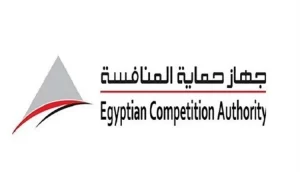The General Authority for Investment and Free Zones (“GAFI”) introduced new key regulatory changes to the Egyptian Companies Law No. 159 for 1981 and its Executive Regulations (the “Companies Law”), ranging from setting out new rules for sending out general assembly invitations, to introducing rights issue rules for unlisted companies in association with the Egyptian Stock Exchange (“EGX”), in addition to stipulating new corporate governance rules, etc. These significant new amendments were introduced by a number of circulars issued in the beginning of 2019 (the “Amendments”).
Below are highlights of these Amendments:
GAFI and EGX jointly circulate rights issues for unlisted companies
GAFI issued circular No. 20 for 2019 in association with EGX (the “Circular”) relating to rights issues in unlisted joint-stock companies. The Circular provides new definitions and terms such as the issuing company, rights issues, trading system for rights issues, the lapse of rights, and invitations to existing shareholders to subscribe. The Circular also stipulates GAFI’s and EGX’s interests in improving awareness of shareholders in unlisted companies and to enact protection of minority rights therein.
GAFI clarifications on new rules for sending out General Assembly invitations and amendment to the Egyptian nationality requirement for Managers under the Companies Law
Pursuant to GAFI circular No. 256 for 2018, joint-stock and limited liability companies are no longer required to send physical invitations by regular mail to each shareholder to attend general assembly meetings; instead, the invitations for a general assembly meeting should be published twice in two daily newspapers five days apart. One of the placements must be in the Arabic language. The same circular also removes the condition that at least one of the managers of limited liability companies must be an Egyptian national.
GAFI clarifications on secret voting in elections/removals of Board Members
GAFI circular No.19 for 2019 states that the general assembly meeting minutes must specify that secret voting will be used with regard to elections and/or removals of board members, and a form for secret voting ballots was enclosed with the said circular.
Introducing new electronic collection of government receivables
Starting on February 20, 2019, cash payment in consideration of provided governmental services will no longer be accepted at GAFI’s main investor service center. Payment shall be made for the services through direct deposit into GAFI’s bank accounts, or through electronic payment cards, or by any other electronic payment method approved by GAFI.
GAFI publishes corporate governance rules
Circular No. 21 for 2019 as well as the Framework for the Protection of Minority Shareholders in Egypt (the “Framework”), both issued by GAFI, together form a list of corporate governance rules all companies incorporated under the Companies Law and the Egyptian Investment Law No. 72 for the year 2017 (the “Investment Law”) must abide by. This circular mainly regulates all matters with regards to the board of directors of companies, while covering other governance-related matters such as company disclosures to GAFI, general assembly meetings, and corporate committees. The same circular also emphasizes GAFI’s role in monitoring the activities of companies to ascertain that there are no violations of the corporate governance rules. The said circular further stipulates that any companies found to be violating the corporate governance rules will be warned by GAFI by virtue of a notification and will have one month (more in exceptional circumstances) to rectify the violation.
The Framework, on the other hand, focuses on minority shareholders in Egypt and the ways in which their interests are protected under Egyptian Law. The framework includes definitions for minority shareholders, while clearly stating what the rights and obligations of each shareholder are, and the role of GAFI to ensure that the interests of minority shareholders are being protected.
GAFI allows companies to submit records electronically
Companies are now able to submit their commercial records electronically pursuant to GAFI Decision No. 96 for the year 2019. The said decision states that companies wishing to submit their records electronically must first obtain approval from GAFI by submitting an application to the Investor Center at GAFI and they must use electronic signatures on their records.
The same decision stipulates that all relevant public bodies must accept electronic submission of records and that said electronic records will be tied to GAFI’s database. Moreover, the decision stipulates that GAFI will determine all the information that must be included in the electronic records, the method in which this data may be submitted, and the times at which the data should be submitted electronically. Further, pursuant to the said decision, GAFI is under an obligation to create an electronic record registry and electronic commercial books.
The Financial Regulatory Authority (the “FRA”) amends the compliance period for incorporating “Cumulative Voting” in their bylaws
Pursuant to Circular No.1 for 2019 issued by the FRA, companies operating in non-banking operations and companies with securities listed on the EGX may incorporate cumulative voting into their bylaws at any time, as long as the incorporation occurs prior to the board elections of the company. Prior to the issuance of this new circular, companies were required to incorporate cumulative voting into their bylaws before the 25th of June, 2019.
GAFI and the Ministry of Investment and International Cooperation (the “MIIC”) publish a guide on general assembly and board meetings
To support investors, GAFI and the MIIC published a comprehensive up-to-date guide on general assembly meetings and board meetings, reflecting all the legislative changes that occurred in the past months. The guide covers all matters related to general assemblies and board meetings, such as the different types of assemblies and the occasions under which each type of assembly should be convened, the requirements for the invitations of the meetings, and the voting procedures. Additionally, the guide offers a step-by-step guide to the ratification process, the time in which the documentation must be ratified, and the associated fees. Further, the guide includes a list of considerations that investors must bear in mind when ratifying extra-ordinary assembly meetings that amend certain articles in the company’s Articles of Incorporation (shareholder structure, name, term, etc.). An example of this would be that the term of a company may be extended only if GAFI approves the extension; if not, the company will be liquidated, and so on.



